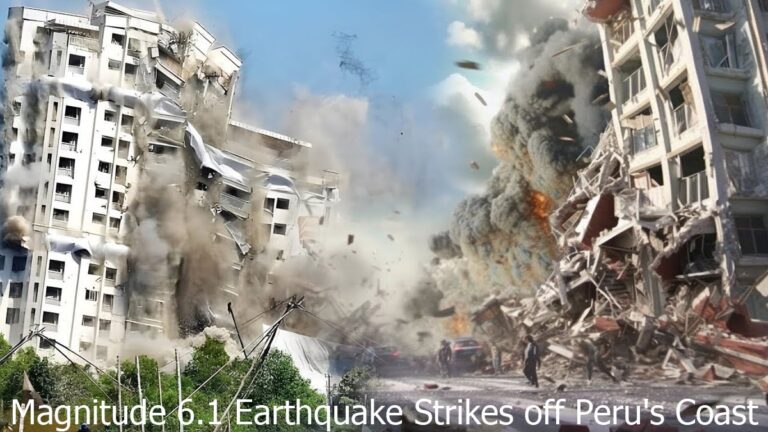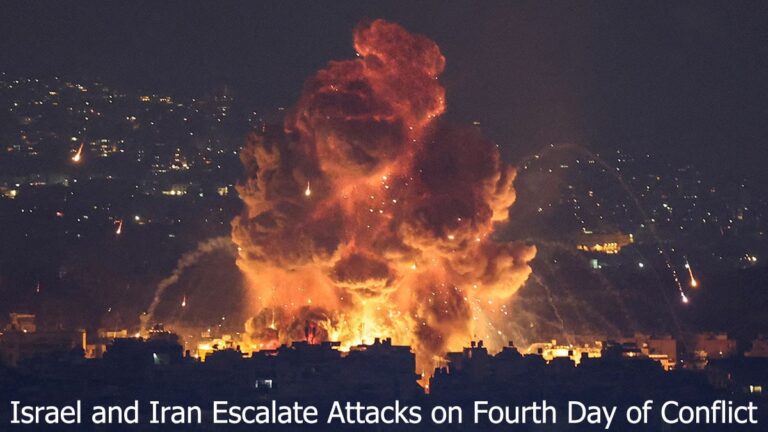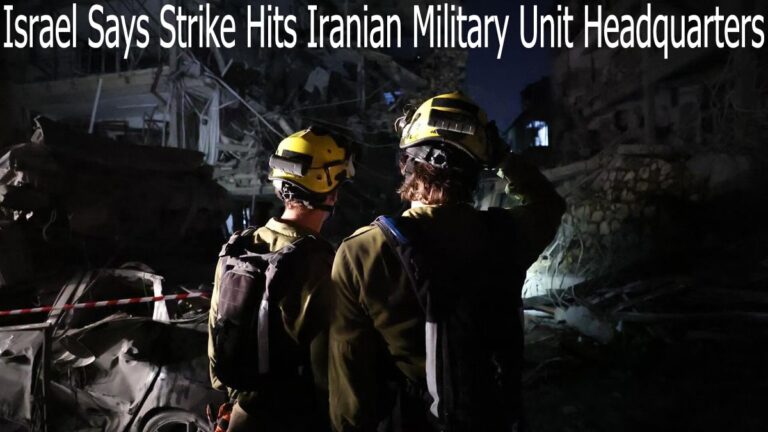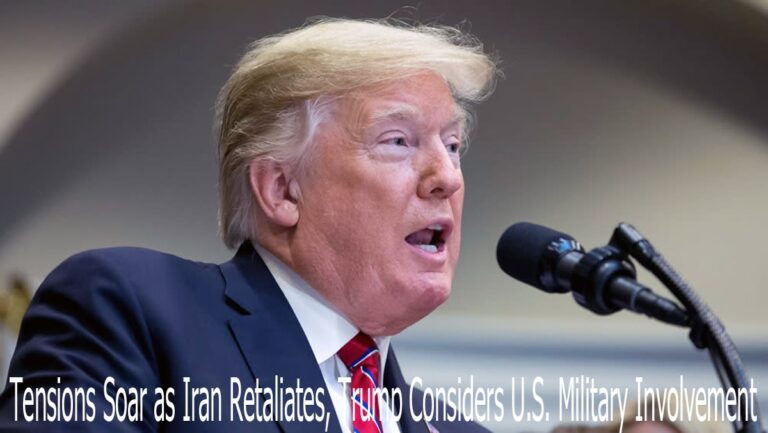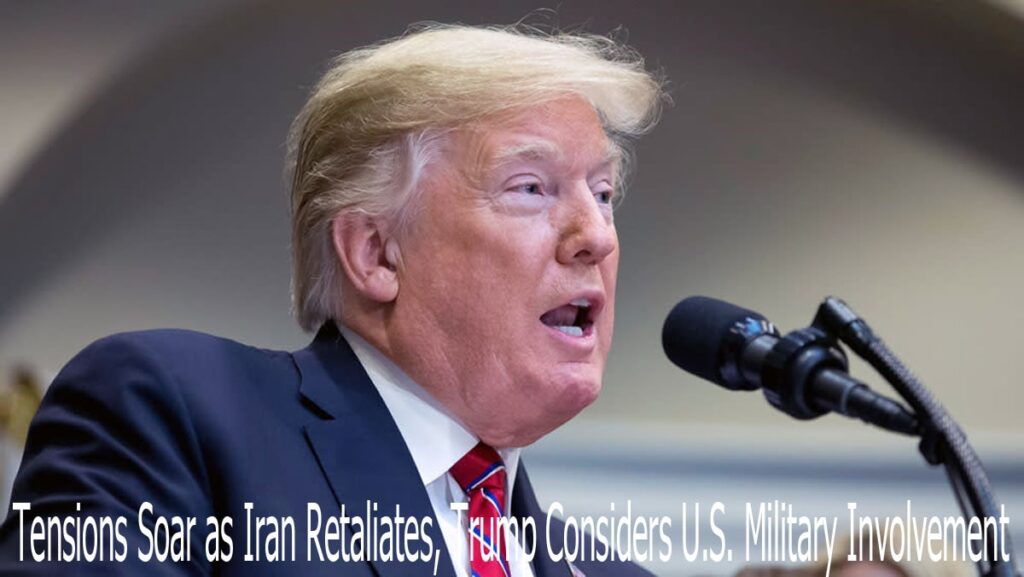
Tensions Soar as Iran Retaliates
Israel-Iran tensions have escalated to a perilous new level. With both countries exchanging aerial strikes, U.S. President Donald Trump is reportedly considering potential American military involvement. The situation threatens to disrupt not just the Middle East but global stability at large.
Retaliatory Strikes: Iran and Israel Exchange Attacks
The latest escalation began on June 13, 2025, when Israel launched a series of missile strikes targeting key Iranian military and nuclear facilities. Among the targets were Iran’s Ministry of Defense headquarters, the Defense Innovation Organization, and two nuclear sites in Natanz and Isfahan.
In response, Iran initiated a large-scale operation dubbed “True Promise 3”, launching dozens of ballistic missiles toward at least 40 military sites across Israel on June 16, 2025. Some of the missiles struck locations close to Tel Aviv and the southern border after successfully penetrating Israel’s Iron Dome defense system.
Iran’s Supreme Leader, Ayatollah Ali Khamenei, declared that Israel had “crossed a red line” and warned that Iranian retaliation would not stop “until a proportionate price is paid.”
Iran’s Ministry of Health reported at least 224 deaths and over 1,400 injuries since the conflict began. Israel has yet to release official casualty numbers, though independent reports confirm extensive damage in several regions.
Trump Weighs U.S. Military Action: Strikes on Iranian Nuclear Sites?
While the military escalation rages on, global attention has turned to Washington. President Donald Trump, currently in the midst of his re-election campaign, reportedly held a closed-door meeting with top security advisors on June 18, 2025, to consider U.S. options.
According to Bloomberg and Axios, one scenario being considered involves precision airstrikes on Iran’s Fordow uranium enrichment facility. Though Trump has yet to make an official statement, sources inside the White House suggest a decision may be imminent.
In a recent interview with Fox News, Trump hinted at his strategic mindset:
“I like to make the final decision one second before it’s needed. All options remain on the table.”
American Public Opposes Another War
Despite these considerations, public sentiment in the United States is leaning heavily against military involvement. According to a YouGov–The Economist survey conducted from June 13–16, 2025, 60% of Americans are against direct U.S. involvement in the Iran-Israel conflict.
Of those surveyed, 24% are unsure and only 16% are in favor of military involvement. A majority said the U.S. should focus on diplomatic efforts related to Iran’s nuclear program, not military solutions.
Global Response: Condemnation and Calls for Ceasefire
International reactions have been swift. A coalition of 24 countries, including Indonesia, Saudi Arabia, Turkey, and Brazil, issued a joint statement condemning Israel’s aggression and labeling it a violation of international law.
The joint declaration called for an immediate ceasefire and emphasized that “diplomacy and dialogue are the only sustainable solutions.” The statement urged both parties to return to negotiations and avoid plunging the region into a full-scale war.
Economic Shockwaves: Oil Prices Surge, Dollar Strengthens
The conflict is already having serious economic consequences. Global oil prices surged to $78 per barrel, the highest in months, as tankers diverted away from the increasingly dangerous Strait of Hormuz.
Shipping costs have skyrocketed due to longer reroutes through the Indian Ocean, and market volatility is rising. The U.S. While emerging market currencies, like the Indonesian rupiah, plummeted, plunging to Rp16,300 per USD, the dollar index rose to a nearly 18-month high. Major stock markets in Asia and Europe also recorded steep declines as investor confidence wavered.
Diplomacy Still an Option?
Despite the rhetoric of war, many believe the crisis can still be resolved through diplomacy. The United Nations, European Union, and a number of non-aligned nations are pushing for renewed dialogue over Iran’s nuclear ambitions and regional security.
As missiles fly and tensions mount, the world is left waiting: Will President Trump pull the trigger, or will he listen to the public and choose restraint?
